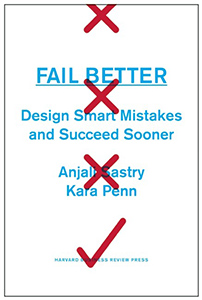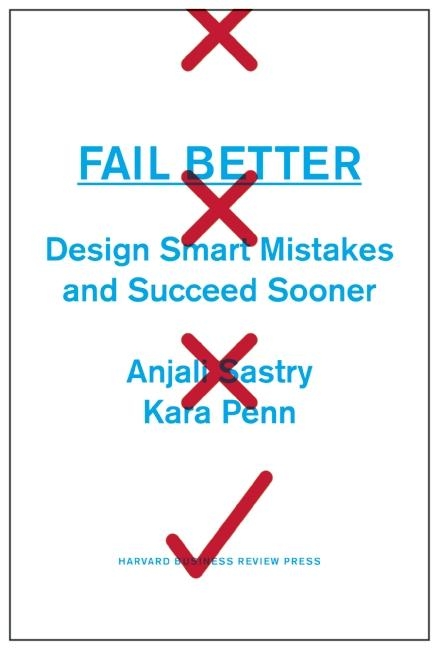Fail Better
November 11, 2014
While failure in business is a given–it can also lead to success with the right mindset and approach.
 While failure in business is a given–it can also lead to success with the right mindset and approach. But much of the literature available on this oft-used buzzword has fallen short of delivering ways to learn from mistakes and to succeed. A new book from MIT authors offers this needed guidance with a practical approach.
While failure in business is a given–it can also lead to success with the right mindset and approach. But much of the literature available on this oft-used buzzword has fallen short of delivering ways to learn from mistakes and to succeed. A new book from MIT authors offers this needed guidance with a practical approach.In Fail Better: Design Smart Mistakes and Succeed Sooner (November 4, 2014), Anjali Sastry, senior lecturer at MIT Sloan School of Management and Kara Penn, cofounder and principal consultant at Mission Spark, a management consulting firm dedicated to organizational change and improvement in complex and often resources-constrained settings, argue that the right kind of failure: small-scale, reversible, informative, linked to broader goals, and designed to illuminate key issues—paves the way to success. Fail Better provides the framework to do just that–to "fail better."
Sastry and Penn have worked closely with hundreds of managers, CEOs, and leadership teams–and while they have seen many blindly stumble to learn from visible failures–they have also encountered teams who relish failure's lessons. Based on years of interviews and watching how these exemplars design projects, spend their time, and frame their work–they have developed the "fail better" approach which creates the conditions, culture, and habits to systematically, ruthlessly, and quickly figure out what works.
The Fail Better method is broken down into three steps that can be applied across sectors, organizations and levels of hierarchy. The authors define how to:
- Launch every innovation project with the right groundwork
- Build and refine ideas and products through iterative action
- How to identify and embed the learning throughout the organization
- Make predictions and map system relationships ahead of time to better assess results
- Establish how much failure can be afforded
- Prioritize project activities for disconfirmation and iteration
- Learn from every action step by collecting and examining the right data
- Support efficient, productive habits to link action and reflection
- Distill, share, and embed the lessons from every success and failure
Anjali Sastry is senior lecturer at MIT Sloan School of Management and lecturer in the Department of Global Health and Social Medicine at Harvard Medical School.
Kara Penn is cofounder and principal consultant at Mission Spark, where she works on the front lines of practical management to implement new approaches in complex settings.


